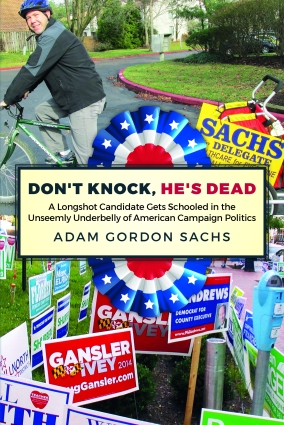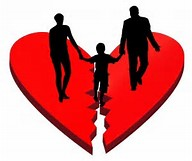Alcoholism is an insidious disease. Those with the hubris or self-delusional thinking to believe they can confront it and defeat it or manage it without professional help and community support, or who are oblivious, willfully or otherwise, toward recognizing their problem, invariably lose. That’s not to say that people with alcoholism who choose to go it alone are senseless, just that they are human and flawed, and as such, stubborn, prideful, in denial, and resistant to surrender. This is the tragic story of one of them.
*Names have been changed.
I received a text message overnight from Monty*, the head tennis pro at a community recreation center near where I was teaching tennis for the summer at a seaside resort. We had met early in the vacation season to talk about whether he had need for assistance and whether I could work around my schedule to teach at his club.
As a last-minute replacement hire, Monty also struggled to find housing for his three-month gig, which is prohibitively expensive and scarce at the shore. So throughout the summer, it was common for him to text me to help him with his housing search or to let me know his teenage assistant wasn’t working out and to ask whether I had any availability to teach.
But this text was different. It was shocking, but unfortunately, not entirely surprising: “Adam, I heard your friend Kevin* is no longer with us. If it’s true, I’m sorry for your loss.”
I didn’t see the text until the morning, just before I started teaching for the day. When I  got home, I searched online to see if I could find any confirmation of what Monty had relayed to me. I did. It was a sad, bizarre and surreal article in a Caribbean newspaper, but rang true to what I knew about my friend Kevin. Alcohol did him in.
got home, I searched online to see if I could find any confirmation of what Monty had relayed to me. I did. It was a sad, bizarre and surreal article in a Caribbean newspaper, but rang true to what I knew about my friend Kevin. Alcohol did him in.
The article described how Kevin had traveled to the Caribbean island from the U.S. Heartland in hopes of securing a tennis teaching job at an island resort. In unusually detailed reporting, the article also explained that Kevin was unable to land a job because he remained drunk all day and night, and had numerous cuts stitched up on his head from falls as testament to his non-stop drinking. According to the article, Kevin drowned in shallow waters beneath a coastal town’s popular boardwalk, lined with restaurants and bars. By the time passers-by spotted him and pulled him out, he was gone. He was 61.
The Odd Couple
Kevin and I not only were roommates for summer 2016, but taught tennis alongside each other at the large coastal resort. We spent more time together than a married couple, especially since Kevin did not have a car. He said his car had some mechanical problems and that he did not want to take it on the long trip from the Midwest to the Atlantic shore. I took him at his word at the time, but now I suspect he might have lost his license due to drinking-related violations. It might have been one of those little lies he told others and himself to mask an unpleasant truth.
I took him on shopping and banking errands, restaurant outings and side trips, and we usually drove to work together, with his bike on the back of my car in case our departure times were different. He called me his “wing man” on social outings. We shared lunch breaks at the tennis center and barbeque dinners at home. When it rained, we sometimes taught side-by-side on the same indoor court. Together, we watched his favorite Midwestern teams compete in the NBA Playoffs and hockey’s Stanley Cup at restaurants until our cable TV got hooked up, then from our couch.
When I first made Kevin’s acquaintance by phone, I got the impression that Kevin, at age 60, was mellow and wise, a sage who would bring harmony to any situation. While that impression wasn’t entirely inaccurate, it missed the mark. From the moment I met Kevin on my first day at the tennis resort, when he burst through the clubhouse doors sweaty and pepped up from his bike ride to the facility, and zeroed in on me immediately as his new roommate, colleague and man he had communicated with by phone and email for several months, I knew he was more like the proverbial “real pistol,” a whirling dervish, belying his near-senior citizen status.
We were The Odd Couple – he the big-talking extrovert prone to braggadocio, the raconteur of uproarious stories, the unabashedly gutter-mouthed chatterer, the lifelong bachelor, the conqueror of beautiful women, the bon vivant, the energetic go-getter, the confident expert in his field; me the introvert, the married man with kids, the calm and contemplative one, the boring one satisfied to do solitary things at home and rest, the relative newbie at big-time tennis teaching who didn’t know if he fit correctly within the zeitgeist of the profession. But somehow, the yin and yang worked; we played off each other like Felix and Oscar.
I’ve Got to Get out of this Place
Kevin – who introduced himself as “Coach Kev,” the same as he was called by his students — got in touch with me in spring 2016, several months before we both showed up in the beach town as seasonal tennis instructors, to make my acquaintance and discuss strategies for searching for a place to live for the summer. We talked numerous times about our backgrounds and experiences, and our prospects for securing housing.
In the course of those discussions, Kevin revealed that he was an alcoholic, had attended Alcoholics Anonymous, had a sponsor, and had been sober for three years. He said he had been sidetracked from his tennis teaching and coaching career by an illness and death in his family, forcing him to return to his Midwestern hometown after globetrotting for two decades, bouncing around among eight states from the Southeast to the Mid-Atlantic to the Midwest to the Northeast, with an interlude in China.
In hindsight, I suspect that transient existence may have had something to do with Kevin’s battles with alcohol.
He was eager to get away from what he called his “gloomy” Midwestern home state and a grunt-labor factory job he worked while caring for his family member to “build a nest egg” to jump-start a better life doing what he loved. The tennis court was his sanctuary.
“Can’t wait to get out of here and to the beach!!!” he wrote in one email.
“Let’s work hard and have some fun and learn something about each other and the rest of the team this summer,” he wrote in another.
Fish Tales
I secured a room for rent in a homeowner’s house two miles inland from the beach, and connected Kevin with the homeowner Steve*, who rented Kevin the other available room.
The three of us became friends during the summer of 2016, engaging in fraternity-like banter about each other’s social lives, eating and shopping habits, athletic prowess, and quirks. Kevin told stories about living with a trio of Swedish girls while working in a ski resort town and adventures in Alaska, where he claimed to be a friend of singer Jewel. We all laughed at Kevin and Steve’s evening rituals of lawbreaking, when they would walk through neighbors’ property to fish in the adjoining private golf course’s pond and play the closest three holes as freeloading non-members, both activities prohibited.
Steve and I cracked up as Steve recounted Kevin’s reaction when admonished by a golf course superintendent that fishing was not allowed on the golf course.
“What do you MEAN there’s no fishing?!” Kevin bellowed incredulously to the golf course official, fishing line dangling in the water from the bank, as if those golf course fish were Kevin’s God-given right to catch.
I still have the hilarious image in mind of Kevin striding purposefully down our neighborhood street, wearing his floppy fishing hat and fishing vest with dangling lures and hooks, wading pants and boots, fishing pole carried erect, looking comically out of place amid the trailers and modular homes with no river or lake within proximity. Invariably, he would come home in darkness with a fishing tall tale, immediately pulling out his cell phone to show me photos of and describe in vivid detail his evening’s triumphs.
The Big Dog
On the tennis court, Kevin was intense and driven – perhaps too much so for a resort environment. He had a strong desire to demonstrate his knowledge and skill, and seemingly to show he was superior to other tennis coaches, The Big Dog, which appeared true but may have rubbed some the wrong way.
He sometimes became frustrated with lackadaisical players on his court during clinics, urging them, “Move, players, move!” Some liked to be pushed; others felt browbeaten – after all, they were on vacation, not training for Wimbledon. On occasion, when players failed to listen or couldn’t understand instructions, Kevin would turn his back to players and perform the religious ritual of crossing his chest and looking toward the heavens in mock – or in his case, perhaps all too real — despair.
Kevin was an excellent tennis coach, with a knack for explaining technique, strategy, shot selection and court positioning in simple, succinct and understandable terms. Players who were truly interested in improving their games gravitated to him, booking private lessons. Parents who wanted to help their kids compete at a higher level often sought out Kevin to be their coach for a week or two, or intermittently during the summer, deeming him the instructor who could produce the most results.
I learned a lot from Kevin about tennis coaching and teaching. I often watched his lessons and took notes on his sayings, advice, instructions and drills. Invariably, Kevin would bring his day at work home with him, recounting each teaching hour of his day, analyzing individual players on his court and their idiosyncrasies, describing what went well and what didn’t, and sharing his observations of other coaches, administrative staff and the entire tennis resort operations. He assumed the role of self-appointed management consultant and evaluator, seemingly unsatisfied to limit himself to his more narrow daily duties.
He would ask me about each of my clinic hours and students, and offer commentary on what he observed of my on-court performance. We often engaged in hours-long discussions on the finer points of tennis stroke production, doubles strategy and movement, ball-feeding patterns, purposeful drills, and how to keep clinics fast-paced, engaging and informative. He used his fingers to diagram and explain drills on our kitchen counter, moving them along the Formica® to demonstrate the flow.
His intensity and high standards often extended to the tennis club’s administrative staff, which caused him anguish when he believed they were lax or did not communicate well, especially about scheduling and booking issues. “They’re taking money out of my pocket,” was Kevin’s frequent refrain. As a result, tensions mounted between some of the young desk assistants, who may have felt intimidated or unfairly criticized, and Kevin, who expected a high level of professionalism. His reasonable but firmly delivered demands for accountability may have hurt him in the end.
Kevin was full of bluster and confidence. Even though he was 60, he approached the tennis teaching gig like he was 25, insisting with bravado that long hours on his feet in temperatures hovering around 90 were “a piece of cake.” Recognizing his desire to work and customers’ appreciation of his coaching skill, the club worked him hard. Some days, Kevin would start with an 8 a.m. lesson, and would finish with the 6 p.m. evening clinic, arriving home by bike at 7:30. The grind finally wore on him. “They’re riding me like a mule!” he would confess, sweaty and red-faced.
Voluntary and Involuntary Transitions
As the summer wore on, Kevin realized it was time for him to search for his next gig, as our tennis center dramatically cut its teaching staff after Labor Day. After several weeks of negotiations, Kevin proudly announced that he had secured a tennis teaching job at a large Florida facility. Kevin, who came from a family of eight siblings, called one of his brothers to share the good news, and became frustrated when he was met with skepticism and disapproval.
Late at night, after the phone call, he knocked on my bedroom door, wanting to talk. He lamented that his brother and other siblings didn’t share his joy in nabbing the Florida job, but instead seemed to want him to head back to his Midwestern home base and hunker down with something more stable and secure. He assured his brother that he was doing well, was happy and sober, and was excited about the new opportunity. Sad and reflective during our conversation, he seemed distraught by how difficult it had become to relate to close family members and their seeming lack of confidence in him and support for him, and needed an ear to bend. Coach Kevin was headstrong. He wasn’t the kind to do what others wanted him to do with his life, and resented the insinuations that others knew what was best.
Soon after Kevin scored the new job and his distressing phone call, things began to unravel. I’m not sure if a slip from drinking abstinence precipitated trouble at our tennis club or trouble at the club precipitated drinking. As far as I could tell, Kevin had done a fantastic job staying sober, resisting temptations, grinding on the tennis court and keeping himself on track all summer.
But in August, Kevin was let go from his job. He received a call one morning, and left home early for work. During busy morning clinic hours, when Kevin typically could be heard five courts away barking instructions and exhorting his players, Kevin was nowhere to be found. At lunch, the tennis director and head pro pulled me aside, as a courtesy since I was Kevin’s roommate, to let me know they had let him go that morning.
Relapse came fast and hard for Kevin, and with it, the ravages of alcoholism. Within a few days, his descent was so steep I couldn’t even recognize the Kevin I knew, from confident, energetic, strong and outgoing to weak, bumbling, indecisive and lost. He was a shell of his former self. For several weeks after his firing, with nothing to occupy his time, Kevin’s days revolved around drinking and were spent secretively in a drunken fog and the throes of violent physical illness, and in desperate but futile attempts to stop.
He knew he was sick and needed help, but refused to accept help from his roommates and a few other friends, always appreciating and thanking us for offers but never following through. He resisted regularly attending a nearby Alcoholics Anonymous meeting. He stubbornly persisted in his effort to slay the dragon on his own through sheer force of will, or maybe perversely preferring to wallow alone in misery as a form of self-punishment, shame and guilt. He startlingly and rapidly declined physically, lacking sleep and nutrition and looking like he had been in a barroom brawl from numerous cuts on his head, hands and legs incurred from falls, similar to what was reported in the Caribbean newspaper about his final weeks.
With prompting and help from Steve, Kevin got his act together enough to pack some of his stuff, buy a bus ticket to Florida, and hitch a ride to the bus depot with Steve for departure. But I suspected in his condition, his new venture would be doomed from the start.
An Unexpected Reunion?
Kevin and I left messages for each other several times in the fall, but had difficulty connecting. In messages and short conversations, it wasn’t clear exactly what he was doing, but I gathered that Florida had not worked out and he ended up back at his Heartland home base.
Then, in spring 2017, he contacted me to let me know he was making a comeback, literally. He was up for two seasonal tennis director jobs at a country club and the planned community recreation center along the same stretch of Mid-Atlantic shore that we both worked the previous summer. He offered me to be his assistant during my off times at wherever he landed, knowing that I was returning to the bigger tennis resort at which we both had worked the previous summer as my main job. I said I was interested, but couldn’t guarantee him anything, owing my allegiance contractually to my employer and working unpredictable schedules day-to-day.
He took the job at the community recreation center, keeping me updated on his programming plans and anticipated needs for an assistant pro. Once again itching to leave the gloomy Midwest behind, he arrived at the shore a good two months before the busy summer season began in earnest.
In one phone call before the summer season started, Kevin sounded particularly anxious and downbeat about his inability to find a reliable assistant, a lack of support and tennis industry knowledge on the part of the recreation center management, and the challenges of designing a schedule, implementing programs, establishing a budget and purchasing equipment. The responsibility all fell to him as a one-man operation, and he seemed to be feeling the pressure.
Downward Spiral
Within days, I got a call from Steve saying that Kevin had fallen off the wagon, had been hospitalized and had lost his tennis director’s job, replaced in an emergency hire by Monty. He hadn’t even made it to Memorial Day.
Kevin eventually caught a bus back home to the Midwest. I talked to him a couple of times while he was there. He told me ruefully that he “screwed up,” that he was depressed and about to enter a 30-day rehab program, that if he didn’t he feared he would die. But about a week later, I received a voice message from Kevin. In our previous conversation, he said he wouldn’t be allowed to have a cell phone in rehab. I concluded he had decided not to attend rehab at all, or bailed or got kicked out after a few days.
I didn’t hear from or about Kevin again for the rest of the summer, until I got the text late at night on September 1 from Monty, who had heard the news from the board president and manager of his recreation center/tennis club, where Kevin had preceded Monty as the short-lived tennis director.
In an odd and admittedly delusional way, I feel like maybe, just maybe, I could have changed the course of Kevin’s life and saved him from his drunken stumble to his death off the gorgeous island’s boardwalk. Maybe if I had been able to offer him more assurance that I could assist him in his new job at the shore, relieving some of his anxiety. Or perhaps if I had been in touch with him more frequently over the summer, providing him someone less judgmental than family members in whom to confide or vent fear and frustration. But I know that is unrealistic, fooling myself about having any power or influence over the death grip of alcohol and its captive. Without the alcoholic’s full surrender to the indomitable potency of alcohol and to a power greater than oneself, bystanders can do little to save the alcoholic from himself. Lord knows, Kevin’s many family members must have tried mightily to exert power or influence over the years, only to be rendered helpless in the end.
This is speculation, but my best guess is that Kevin had a tennis industry contact on the Caribbean island who encouraged him to relocate with the promise of leads for tennis teaching jobs. The newspaper article said Kevin stayed at a private residence on the island before moving into a hotel, a possible indication that drinking may have disrupted his stay with someone he knew.
Maybe Kevin wanted to make the ultimate escape, leaving behind the U.S. mainland, family, friends and acquaintances, and past job failures and bad memories, all together for a tropical paradise, where everybody is in good spirits, the slate is clean, and beauty abounds. Problem was, he couldn’t escape himself and his disease. Ultimately, it appeared, he ended up in a place where nobody – or perhaps practically nobody — knew him, where he could blend into the scenery and surrender, willfully or not, to his vice and disease unfettered, instead of to a higher power, without the watchful eye or emergency intervention of anybody who cared, a paradise that paradoxically turned ultimately into his own private hell.
I haven’t been able to stop thinking about Coach Kevin since I heard the news and found the article. It doesn’t seem real, but more like “fake news.” I keep thinking that I will hear from him again, about his next stop in his series of adventures, and to check in on me. But his disease was all too real.
Though he could drive me a little nuts with his hyper-analysis of our tennis teaching days and critiques of my performance – often backing off later saying, “Ahh, don’t listen to me…I’m just trying to help ya” – I appreciated Coach Kevin as a one-of-a-kind character. I’ve never met another Coach Kevin in my life – the intensity, the bravado, the humor, the sailor’s mouth, the entertaining stories, the wide-ranging opinions, the passions, the insights, the hard-learned wisdom, the friendliness, the complexity of his personality and being. He was one of those people you come across in life who you never forget, who makes an indelible impression. I was glad to call Coach Kevin my friend and I’ll always remember him, even though we were so different and entered each other’s lives late and for only a brief period.
I am deeply saddened by the loss of my friend. It would have been wonderful to keep in touch for years to come, sharing tales of new adventures and offering support and encouragement. The only solace is that Coach Kevin is free from the demon that he just could not tame despite what had to be many repeated Herculean, gut-wrenching efforts.
I imagine him looking down at me during my last few days teaching in the summer of 2017 and saying in his own inimitable, blunt-spoken way: “That lesson was miserable! What were you doing? I could have had that woman ripping topspin forehands into the corners in five minutes! Pow, pow, pow. Ahh, but don’t listen to me…”
Posted in
addiction,
addictions,
addictive behavior,
alcohol abuse,
Alcoholics Anonymous,
alcoholism,
anxiety,
battling adversity,
beach life,
confidence,
death,
depression,
drug abuse,
fear,
gig,
gig economy,
God,
grace,
higher power,
job,
job loss,
mental health,
midlife,
moving on,
passion,
personality,
recovery,
rehab,
relapse,
seasonal job,
struggle,
substance abuse,
summer job,
surrender,
tennis,
tennis teacher,
tennis teaching,
tragedy,
Uncategorized and tagged
Alcoholics Anonymous,
alcoholism,
death,
depression,
drinking,
friendship,
higher power,
substance abuse
 or depleting investments. Sometimes I have had to unload investments to pay off debts, and always feel bad about it, like I’m filling a city street pothole that is sure to crater again.
or depleting investments. Sometimes I have had to unload investments to pay off debts, and always feel bad about it, like I’m filling a city street pothole that is sure to crater again.

 got home, I searched online to see if I could find any confirmation of what Monty had relayed to me. I did. It was a sad, bizarre and surreal article in a Caribbean newspaper, but rang true to what I knew about my friend Kevin. Alcohol did him in.
got home, I searched online to see if I could find any confirmation of what Monty had relayed to me. I did. It was a sad, bizarre and surreal article in a Caribbean newspaper, but rang true to what I knew about my friend Kevin. Alcohol did him in. Maryland’s capital of Annapolis as a Democratic candidate for state delegate. I had never told my mother I was considering running—our relationship had been strained during her time of unpredictable and volatile mental health, exacerbated by her stubborn nature and rebellious streak. I didn’t want to mention a political run until I was fully committed to entering the race and felt she was on firmer ground. I had planned to let her know I was in the race the next time I saw her. I never got that opportunity. I felt terrible I had never shared the news.
Maryland’s capital of Annapolis as a Democratic candidate for state delegate. I had never told my mother I was considering running—our relationship had been strained during her time of unpredictable and volatile mental health, exacerbated by her stubborn nature and rebellious streak. I didn’t want to mention a political run until I was fully committed to entering the race and felt she was on firmer ground. I had planned to let her know I was in the race the next time I saw her. I never got that opportunity. I felt terrible I had never shared the news.
 The lanky young man with the tattoos took a break from his intricately-detailed pencil-sketching to look up from his art and turned to face me after I introduced myself to the group.
The lanky young man with the tattoos took a break from his intricately-detailed pencil-sketching to look up from his art and turned to face me after I introduced myself to the group. na.
na.